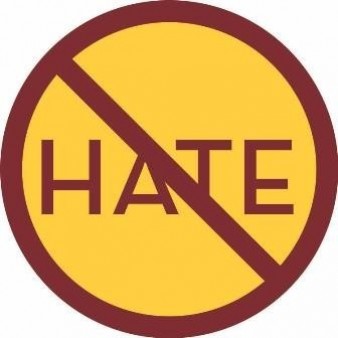Kim Burrell is my mother. She is the woman who shames my sexuality and tells me I’m going to hell. She holds a bible up and uses it as a testimony to the sinful life I live. Her words, not mine. She tells me she loves me, but not the way I love. Kim Burrell is my long time friend of twenty years who has now discovered God and struggles with being friendly to a gay man. She closes off her relationship
In case you don’t know Kim Burrell, she’s a gospel singer and preacher who worked with Pharrell on the soundtrack to Hidden Figures. In a recent sermon she preached about the “perverted” life of homosexuals and how we were living in sin. Ironically she was set to appear on the Ellen DeGeneres show a few days later. Her unplanned captured moment exposed what many already knew: that the divide between gay blacks and the church was wide and that unsaid contempt was on the surface of many of those who call themselves Christians.
Hearing Kim Burrell’s words, I immediately went back to my own upbringing of a young black youth sitting in a church and the preacher telling everyone ‘gays’ were the demon. I sat uncomfortable on the wooden benches as it felt like his words were meant for me and no one else. I was just coming out and was looking for answers. As my relationship was close to God, perhaps he had the answers. Yet according to the man preaching from the pulpit, it was the answer I wasn’t looking for.
And when I was informed I had HIV, for a short while I thought it actually was a sign from God. A sign that I was living in sin. I felt a shame so strong that I went into a hole and didn’t share parts of my life with no one. I placed my gay life and the struggles with HIV, in a box and hidden it where no one could find it. All
Kim’s words don’t represent all black churches as there are some in the community which affirms the LGBT communities. But there are just as many who stand behind the words of Kim and hold her up as a role model to their hate. For the number of people speaking against Kim is the same number praising her.
And we all have Kims in our lives. Those are the people you see every day. While walking down the street, at your workplace, at your barbershop, and at your family reunion. What sets them and Kim apart is she was caught on tape saying what she believes.
Sadly, the black church doesn’t understand the impact they have on gay black people struggling with their sexuality and HIV status. The church has always been a refuge, but only for some. Until these churches
This is not a question of whether God is real or not or why we need a building to worship someone. This isn’t even a debate on the practice of religion. This is an awareness that there continues to be a struggle to be accepted and those standing in the church spotlight have the microphone to make one feel less like an outcast. And a knowing that those attending church can still practice their faith without demonizing others.
Sadly someone new to religion may be caught unaware as they attempt to embrace a church and the church doesn’t embrace them back. Not knowing that you want to be God’s child, but then a man or woman of
If anything good comes from Kim Burrell’s current controversy, it will involve black churches looking at how they embrace the gay black community and whether they practice the love they preach. How do your ambassadors feel, and is their message your message? And if you’re not accepting, what’s holding you back? And if your church is accepting, what can it do to help those lacking tolerance? Because Lord knows we don’t need anymore Kim Burrells preaching hate from the platform.








4 Comments
4 Comments